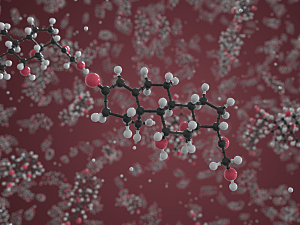There is accumulating evidence that aldosterone and its receptor, the mineralocorticoid receptor, can contribute to cardiovascular risk by activating thrombosis. In turn, rodents treated with mineralocorticoid receptor antagonists show reduction of thrombotic responses to aldosterone.
However, rodent studies involve short-term aldosterone administration. They can’t reflect what probably occurs in humans who are at risk of thrombosis because of chronic, minimally elevated aldosterone, such as individuals with treatment-resistant hypertension, heart failure or renal disease.
In previous work published in Hypertension, researchers at Brigham and Women’s Hospital showed that individuals who carry rs2540923, a single nucleotide polymorphic gene variant of striatin, exhibit salt sensitivity of blood pressure. Striatin is a recently identified protein that interacts with steroid receptors.
In a separate paper published in Hypertension, the researchers reported success in engineering striatin-deficient mice that have salt sensitivity of blood pressure and chronic, modestly increased aldosterone, which can serve as a model of patients with rs2540923.
Jose R. Romero, PhD, an associate physiologist in the Division of Endocrinology, Diabetes and Hypertension at the Brigham, and colleagues have now used the model to show that striatin serves a protective role in the hemostatic system, which may be reduced in humans with striatin risk alleles. They detail the findings in the Journal of the American Heart Association.
Methods
The researchers used a laser to injure arterioles in genetically engineered striatin-deficient mice and wild-type littermate mice. The animals were then randomly assigned to receive acute intravenous injections of either aldosterone or its vehicle.
Key Results
The researchers observed thrombotic responses (platelet and fibrin accumulation) at the site of injury:
- In wild-type mice, acute aldosterone administration significantly increased thrombotic responses within minutes compared with vehicle alone
- Striatin-deficient mice that did not initially receive aldosterone exhibited significantly more thrombosis than untreated wild-type mice—and even more than wild-type mice that received aldosterone
- Acute aldosterone administration had no effect on thrombus formation in striatin-deficient mice
Interpretation of the Findings
In this model, aldosterone administration exerted a rapid pro-thrombotic effect, and striatin deficiency markedly exacerbated thrombus formation. These results suggest that striatin may regulate the hemostatic system through two pathways: increased aldosterone level and/or striatin deficiency.
Polymorphic striatin gene variants in humans may represent novel markers of a procoagulant phenotype and increased thrombotic risk.
